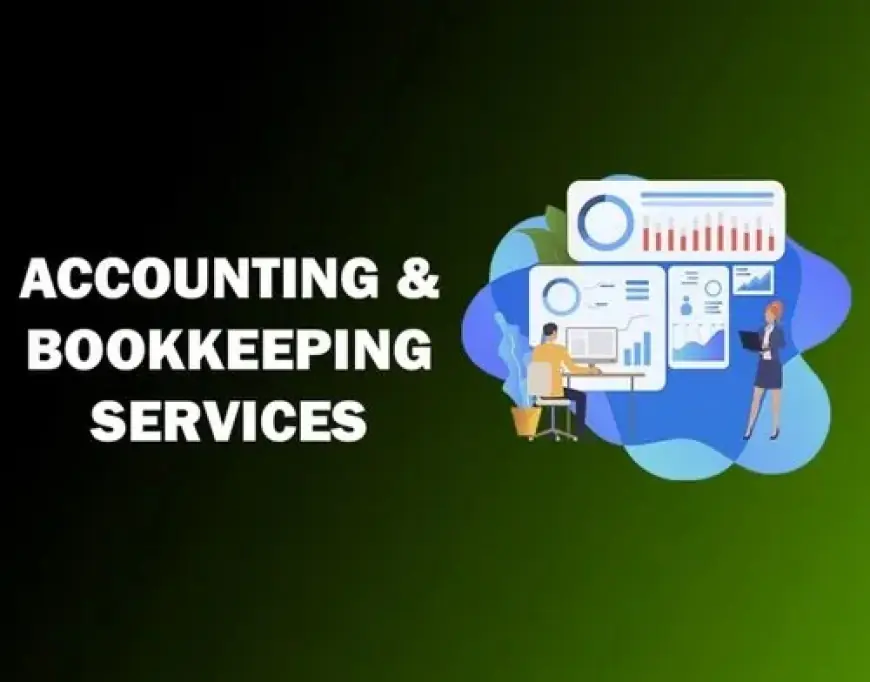A Beginner’s Guide to SAP Accounting & Bookkeeping Services

Managing business finances is no easy feat, especially as your organization grows. That’s where SAP accounting and bookkeeping services come into play. Whether you're a small business owner, a mid-sized company, or a large enterprise, understanding how SAP can simplify your financial processes is crucial.
In this beginner-friendly guide, we’ll break down what SAP accounting and bookkeeping services are, how they work, their key benefits, and why more businesses are making the switch.
What Is SAP Accounting?
SAP (Systems, Applications, and Products in Data Processing) is a leading enterprise resource planning (ERP) software used by businesses worldwide. One of its core modules is SAP Financial Accounting (FI), which helps manage financial transactions, maintain records, and generate financial reports — all in real-time.
SAP Accounting Handles:
-
General Ledger (GL) Accounting
-
Accounts Payable (AP)
-
Accounts Receivable (AR)
-
Asset Accounting
-
Bank Accounting
-
Tax Accounting
-
Financial Reporting
In short, SAP accounting consolidates financial data across departments and locations, giving you a clear and accurate view of your business finances.
What Are SAP Bookkeeping Services?
Bookkeeping is the foundation of all financial management. SAP bookkeeping services involve maintaining accurate financial records within the SAP system, including tracking income, expenses, bank transactions, and asset movements.
When integrated with SAP accounting, bookkeeping becomes more structured, automated, and error-free. Service providers who specialize in SAP bookkeeping help businesses ensure that all financial entries are recorded properly in compliance with accounting standards and regulations.
Why Businesses Choose SAP for Accounting & Bookkeeping
Here are the main reasons companies turn to SAP-powered financial services:
✅ Real-Time Financial Visibility
SAP allows users to access financial data in real-time, making it easier to monitor cash flow, budgets, and profitability.
✅ Centralized Data Management
All financial transactions are stored in a central database, ensuring consistency across departments and eliminating data silos.
✅ Automation of Routine Tasks
Tasks like invoice processing, reconciliations, and journal entries can be automated — saving time and reducing human error.
✅ Scalable for Any Business Size
Whether you're a startup or a global corporation, SAP’s modular design grows with your business needs.
✅ Compliance & Accuracy
SAP helps ensure compliance with local and international accounting standards, including IFRS and GAAP.
Core Features of SAP Accounting & Bookkeeping Services
Let’s dive into some of the key features that make SAP a powerful financial tool:
1. General Ledger Management
All transactions flow through the General Ledger, which tracks financial statements and provides insights into financial health.
2. Accounts Payable & Receivable
Track invoices, payments, credit memos, and outstanding balances — all from a single platform.
3. Asset Accounting
Manage company assets, calculate depreciation, and ensure accurate reporting of fixed assets.
4. Bank Reconciliation
Automatically reconcile bank statements with internal records, ensuring your books stay accurate.
5. Tax & Compliance Management
Handle VAT, GST, and other tax calculations with built-in compliance support.
6. Financial Reporting & Analytics
Generate detailed reports like balance sheets, profit & loss statements, and cash flow summaries instantly.
Who Should Use SAP Accounting & Bookkeeping Services?
These services are ideal for:
-
Businesses scaling operations and needing centralized financial control
-
Companies dealing with complex supply chains or multi-location accounting
-
Organizations preparing for audits or compliance checks
-
CFOs and financial managers looking for real-time insights and detailed analytics
-
Businesses seeking to automate repetitive accounting tasks
Outsourcing SAP Accounting Services: A Smart Move?
Many businesses now outsource SAP accounting and bookkeeping to expert firms. Here's why:
1. Cost Savings
Avoid the cost of hiring full-time finance staff or training internal teams on SAP.
2. Expertise on Demand
Outsourced providers bring specialized SAP knowledge and can handle everything from daily entries to financial strategy.
3. More Focus on Core Business
Letting experts handle your finances means you can focus more on business growth, product innovation, and customer experience.
4. Faster Turnaround
Professional teams work with efficient processes and tools, ensuring tasks are completed quickly and accurately.
Common Challenges (And How SAP Solves Them)
| Challenge | How SAP Helps |
|---|---|
| Manual errors in bookkeeping | Automates entries and validations |
| Disconnected financial systems | Centralizes data across departments |
| Difficulty tracking performance | Real-time dashboards and custom reporting |
| Audit and compliance issues | Built-in tools for regulatory compliance |
Final Thoughts
SAP accounting and bookkeeping services aren't just for large corporations — they’re becoming the go-to solution for businesses of all sizes that want greater control, transparency, and accuracy in their finances. From real-time data visibility to automation and compliance, SAP offers a solid financial foundation for long-term growth.
If you're just getting started, consider partnering with a professional SAP accounting service provider. It’s a smart step toward financial clarity and peace of mind.
What's Your Reaction?
 Like
0
Like
0
 Dislike
0
Dislike
0
 Love
0
Love
0
 Funny
0
Funny
0
 Angry
0
Angry
0
 Sad
0
Sad
0
 Wow
0
Wow
0















































